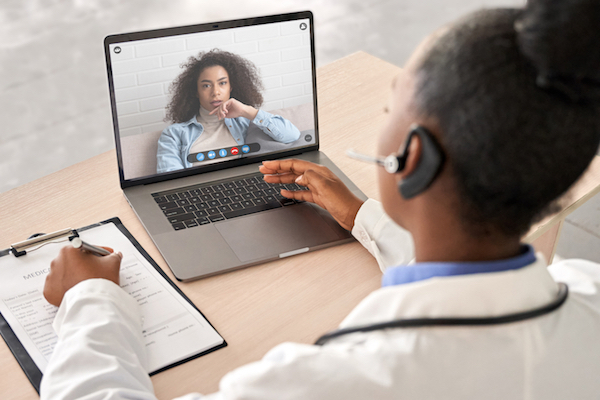Allison Lin, an addiction psychiatrist at the University of Michigan, opines on the increasing impact of virtual care
This article is reprinted with permission from the University of Michigan’s Addiction Center, a partner of TreatmentMagazine.com in working to improve addiction outcomes.
Addiction and substance use. Depression. Anxiety. Loneliness. As the fight to combat the spread of COVID-19 took center stage internationally, its effect on mental health slowly began to tighten its grip on many in quarantine.
But an emerging tool—considered only a year ago by many to be impractical and too difficult to use—has now become widely accepted.
Telehealth, or virtual care, is now a leading tool for allowing patients to meet with a doctor or therapist online in the comfort of their home.
One person who has witnessed this rapid technological change is Allison Lin, M.D. M.S., addiction psychiatrist at University of Michigan Health.
“We’ve seen substance use and overdose rates rise over the last year because people who were having a hard time coping prior to the pandemic are struggling even more and are turning to substances,” says Dr. Lin.

Dr. Lin is one of many doctors, therapists and specialists inside Michigan Medicine who have become increasingly optimistic about the benefits that telehealth can offer for both patients and medical providers.
“Right after COVID hit, we turned to telehealth primarily for keeping patients safe, because we didn’t want them to risk getting sick at a hospital or medical office. But I’ve been pleasantly surprised how much both clinicians and patients have benefited. “There are patients who are now getting care for addiction for the first time because treatment is more accessible and there’s less stigma when you can get treatment from your home,” recounts Dr. Lin.
Due to its potential benefits, Dr. Lin has focused on exploring how virtual care strategies can help patients struggling with addiction and recovery.
“But now, we’re studying how patients can potentially improve with telehealth-delivered treatment. We’re also looking at how telehealth helps patients start and stay engaged in care longer than they would compared with traditional care,” says Dr. Lin. However, we also need to figure out how to make telehealth treatment better, including helping patients with the technology and helping them feel comfortable talking to their providers by video or phone.
Michigan Medicine is also exploring how telehealth interactions with substance use disorder specialists and support groups could open treatment and recovery to many more people. It’s allowing ways to offer better care for entire communities, especially in the most vulnerable populations such as rural areas.
In the meantime, Dr. Lin and her fellow researchers are hopeful about emerging possibilities with telehealth.
“Patients are now used to telehealth and some really like it, so we shouldn’t take it away even when coronavirus wanes,” Dr. Lin says. “It will be important to see how things change, and hopefully to offer telehealth as a choice for the patients who it can help after the pandemic. But we have to evaluate the impacts, including if the treatments are actually effective, as we go on.”
Top photo: Shutterstock














